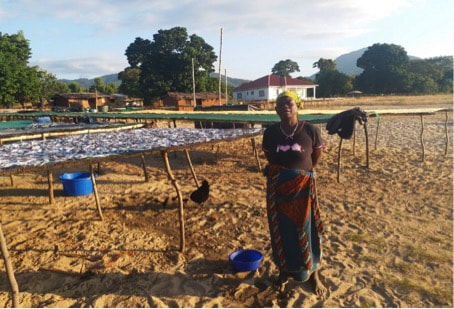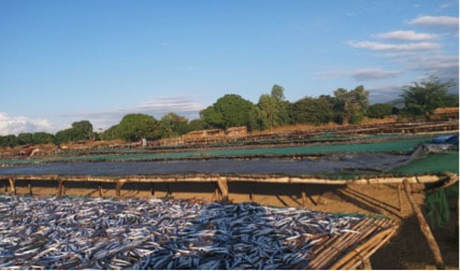Written by CorpsAfrica/Malawi Volunteer Mr. Silvester Kunkeyani
The month is June. A cold season in most parts of Malawi and along the shores of Lake Malawi, often deemed as the goldmine of the lakeshore people. It is this season of the year that the fishing industry booms. At my site in Nkhata Bay District, businessmen from all parts of the country have flocked here to patronize this season. The most common types of fish caught include usipa, batala, bombe and chambo.
If you go to the lake at any time of the day you will see fishermen loading off fish on the shores and a lot of business people bargaining prices. On a good day, a local fisherman makes MWK 250,000 which is about (340$). On the shores, you will see a lot of fishing racks that are used to dry the fish, especially usipa. The fishing business in my community has helped to uplift many peoples’ lives and alleviated poverty of those people in the process. Many people have fishing boats, which they use to catch the fish for their own businesses, while others prefer to rent out their boats to business men who pay the boat owners a certain commission depending on the catch.
Due to many fishing activities taking place around my community, Recognizing Individual Potential and Promoting Local Education in Africa (Ripple), a local organization, has introduced fishing by-laws designed to curb overfishing and conserve fish species in Lake Malawi. The project is being funded by this United Kingdom registered charity, whose focus is to work towards the improvement of local education, healthcare, and the environment in Malawi. The by-laws are under the organization’s fish conservation project, which aims to protect stocks in Nkhata Bay by making communities along the lake shore understand the problems and solutions concerning fish stocks.


